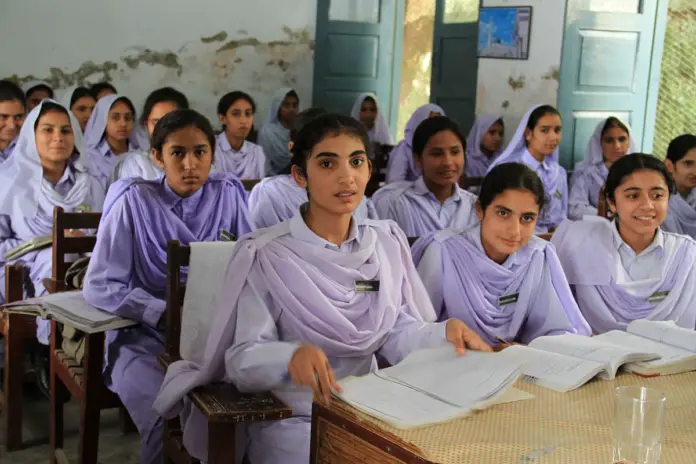Awareness at the public level is necessary to promote literacy and education for all, following the mission “No one left behind.” The nations that have developed in the world have reached this point only on the basis of education and a literate society. That is why, like every year, International Literacy Day is being celebrated all over the world, including Pakistan. The purpose of which is to make millions of illiterate people around the world aware of the importance of literacy and education. In this regard, the Department of Literacy and Non-Formal Basic Education is utilising all its resources. The Department of Literacy and Non-Formal Basic Education in Punjab has been trying since 2002 to increase the literacy rate of the province. The Education Department under the government of Punjab is also on the path of revolutionary changes following the international and national policies and plans based on the needs of learners. One of the major concern on which department working is public private partnership through which community is being involved in education management and planning at school level which is very productive and beneficial for improving the living styles of society.
This one also provides need-based policies for the department. The use of ICT is also adopted by the Literacy and Non-Formal Basic Education Department. The records of all non-formal schools across Punjab, their teachers, and children studying in the schools have been digitised and online, including their various socio-economic indicators, so that future policies can be analysed and compiled based on them. Examinations and assessment are an important part of the education system. The department’s assessment has also been shifted to real-time technology, through which the assessment reports of each child and school are recorded on a central database which is analysed by experts from the Department of Literacy and Non-Formal Basic Education. Based on this, future teacher training is planned to determine which teachers need guidance in which subjects. The same real-time technology is being used by the District Education Officer (Literacy) , the Literacy Mobilizer, and all the field staff to monitor and evaluate the progress of the school. The efforts made by the Department of Literacy and Non-Formal Basic Education in the past years are worthy of mentioning.
Last year, the first non-formal education policy in the history of Punjab was approved and implemented. More than 51,000 out-of-school children were enrolled from the whole province of Punjab under the new enrolment campaign. More than 8,000 inmates in jails were literate and educated so that they could go back to society and play a positive role in the betterment of society. Round about 150,000 Non-Formal Education institutes are established for deprived and marginalized community. In District Muzaffargarh, 370 non-formal schools have been established for out-of-school children, in which more than 13,000 poor and needy children are being equipped with valuable education. In the history of the country, only one non-formal school for juveniles in the district jail has been established. For the first time, an Adult Education Center for illiterate fishermen was established, where 25 fishermen received basic education. The purpose of establishing education centres for adults is to provide basic education to the uneducated people of society. In this regard, 25 adult education centres have been completed. Similarly, more than 50 non-formal schools have been established in madrasas and mosques, where 2 thousand children are being educated along with religious education. 370 committees consisting of parents and community activists have also been established in non-formal schools so that parents and community members monitor the performance of these schools and support them in various matters following the policy of public-private partnership. Along with the establishment of non-formal schools, teacher training was also organized to improve the quality of education.
As in the previous periods, this year, 482 children also completed primary education and passed the school-based 5th class examination organised by the Punjab Examination Commission with remarkable results. In order to improve the performance of non-formal schools, the Punjab government has provided funds to the department to purchase the necessary teaching materials for these schools and the learners studying in them. However, more resources are required to achieve the target of a literacy rate of 85% by 2030. Along with education, the teachers and students of this department also participated in other activities organised by the government. As per the vision of the government, the department, following the policy, should encourage every student to plant a tree in every season of tree plantation. According to government policy, the literacy staff and teachers have been vaccinated 100% with the COVID-19 vaccine. The Department of Literacy and Non-Formal Basic Education is committed to promoting education in remote and underprivileged areas across Punjab. It can be hoped that in the coming time, the efforts of this department will bear fruit and there will be a clear reduction in illiteracy and out-of-school children from the province of Punjab.






